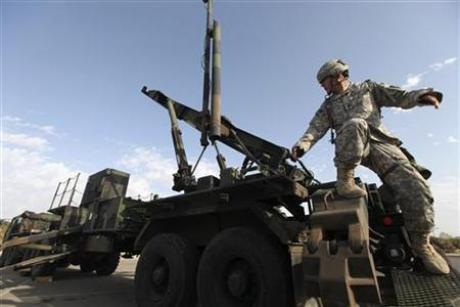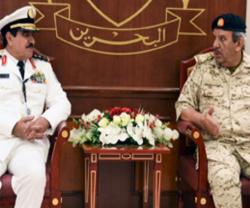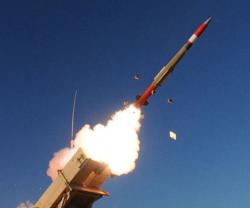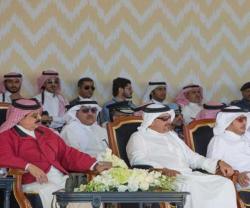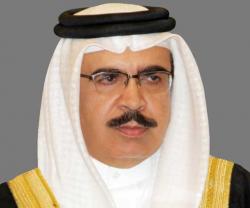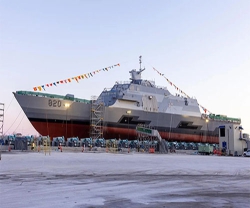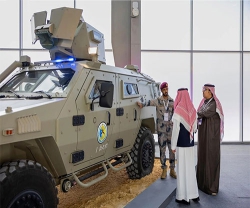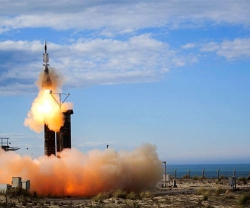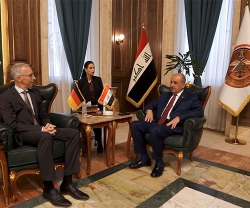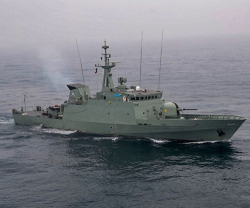US Expanding Missile Defences in Gulf
01.02.2010 North America
The United States has expanded land and sea-based missile defense systems in and around the Gulf to counter what it sees as Iran's growing missile threat, US officials said.
The deployments include expanded land-based Patriot defensive missile installations in Kuwait, Qatar, UAE and Bahrain, as well as Navy ships with missile defense systems in and around the Mediterranean, officials said.
General David Petraeus, who as head of US Central Command is responsible for military operations across the Middle East, said this month that the United States has stationed 8 Patriot missile batteries in 4 Gulf countries, which he did not identify.
The buildup began under the Bush administration, but has expanded under President Barack Obama, who is pushing for a new round of sanctions against Iran over its nuclear program. Officials said the expansion was meant to increase protection for US forces and key allies in the Gulf.
The Pentagon said it envisioned keeping 3 ships at any given time in and around the Mediterranean and the North Sea to protect areas of interest, with the possibility of sending additional ships to the region as needed.
Pentagon officials said deploying ships with SM-3 interceptors, made by Raytheon Co., would provide the flexibility to move US missile defense capabilities as may be needed.
Ships with Aegis interceptor systems are capable of blowing up ballistic missiles above the atmosphere. The system can track over 100 targets, military officials said.
US arms sales to Gulf allies have risen sharply in recent years. In fiscal 2009, UAE bought $7.9 billion in US arms, topping Saudi Arabia, which bought $3.3 billion, the Pentagon said. In 2008, UAE made $8.9 billion in arms deals while the Saudis had $7.8 billion, according to the Congressional Research Service.
The deployments include expanded land-based Patriot defensive missile installations in Kuwait, Qatar, UAE and Bahrain, as well as Navy ships with missile defense systems in and around the Mediterranean, officials said.
General David Petraeus, who as head of US Central Command is responsible for military operations across the Middle East, said this month that the United States has stationed 8 Patriot missile batteries in 4 Gulf countries, which he did not identify.
The buildup began under the Bush administration, but has expanded under President Barack Obama, who is pushing for a new round of sanctions against Iran over its nuclear program. Officials said the expansion was meant to increase protection for US forces and key allies in the Gulf.
The Pentagon said it envisioned keeping 3 ships at any given time in and around the Mediterranean and the North Sea to protect areas of interest, with the possibility of sending additional ships to the region as needed.
Pentagon officials said deploying ships with SM-3 interceptors, made by Raytheon Co., would provide the flexibility to move US missile defense capabilities as may be needed.
Ships with Aegis interceptor systems are capable of blowing up ballistic missiles above the atmosphere. The system can track over 100 targets, military officials said.
US arms sales to Gulf allies have risen sharply in recent years. In fiscal 2009, UAE bought $7.9 billion in US arms, topping Saudi Arabia, which bought $3.3 billion, the Pentagon said. In 2008, UAE made $8.9 billion in arms deals while the Saudis had $7.8 billion, according to the Congressional Research Service.
Previous PostUnarmed Drones to Pakistan
Latest news
Latest events
Doha International Maritime Defence Exhibition & Conference (DIMDEX 2026)
19 - 22 Jan 2026Doha - QatarUMEX – SimTEX
20 - 22 Jan 2026ADNEC Centre Abu Dhabi, - United Arab EmiratesWorld Defense Show (WDS) 2026
08 - 12 Feb 2026Riyadh - Saudi ArabiaSAHA EXPO International Defence & Aerospace Exhibition
05 - 09 May 2026İstanbul Expo Center - Turkey

